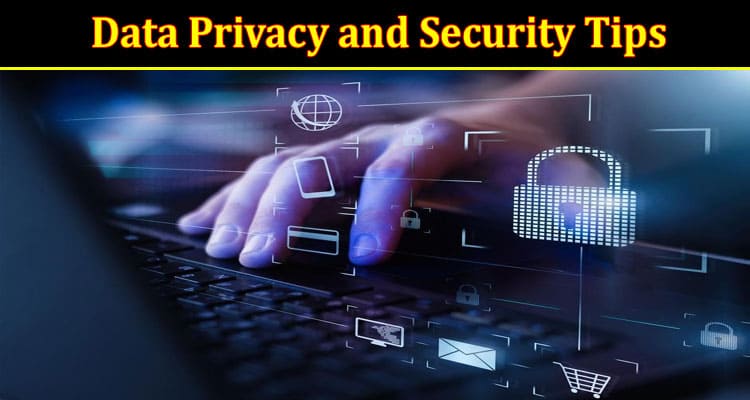In addition to confidential customers’ data, businesses possess sensitive company-related data, which can be critical to their success. In this era of advanced technology, it’s not too hard for cybercriminals to access a business’s confidential data that doesn’t have an efficient privacy and security system and procedure in place.
Therefore, it’s essential for you to take a Privacy by Design approach to ensure privacy compliance is embedded within products and services, not just legal frameworks. Many large-scale businesses, from big software companies to Enterprise car rental ensure that the personal customer data that they collect is kept protected under relevant legislation.
In this article, we’ll go through data privacy and security tips for businesses in detail to make sure you thrive.
Tip #1: Train Your Employees
Regular data privacy and security training should be a must for your employees. Since your employees will usually be the first point of contact with sensitive company data, you must make sure they are well-trained.
For instance, they should be completely aware of and understand your company’s customer data privacy policy. They should be trained enough to know what action to take in case of a data breach and how sensitive data should be handled. Educating them on cyber-attacks and cyber security best practices is equally important, for which you can help them enroll in some online cyber security program which will in turn help in enhancing your data and stuffs.
Tip #2: Keep Your Software and Apps Updated
Most of us are guilty of postponing system updates. However, being lazy or merely reckless for the time being can cost you time and peace down the road. Software and app developers keep issuing updates to fix bugs and errors and to deal with vulnerabilities.
During the time you haven’t updated the software/apps, it’s just like you’re leaving the back door of your home open for thieves. Cyber perpetrators can easily hack and manipulate your system. Therefore, whenever an update notification pops up, don’t delay the update.
Tip #3: Start Using Multifactor Authentication
No matter what tools, programs, and accounts you’re using to run your business operations, you most probably need to log in every day to get access to them. In addition to setting strong and unique passwords, you must enable multifactor authentication.
Even if a cybercriminal somehow gets access to your password, multifactor authentication will act as an extra layer of security. They will be required to enter a code sent to your phone or another email address, which you can only access. This will greatly facilitate you in keeping data breaches at bay.
Tip #4: Dispose of Data Correctly
Disposing of data that is no longer required is an ideal data privacy practice. However, it’s imperative to keep in mind that it needs to be done the right way. Otherwise, the data can end up in the hands of the wrong people who can misuse it.
You should have a robust data destruction policy in place for various devices like hard drives, computers, files, and flash memory to make sure they are properly destroyed. In addition, working with an expert IT disposal partner will further allow you to overwrite data several times to ensure no one is able to recover the data.

